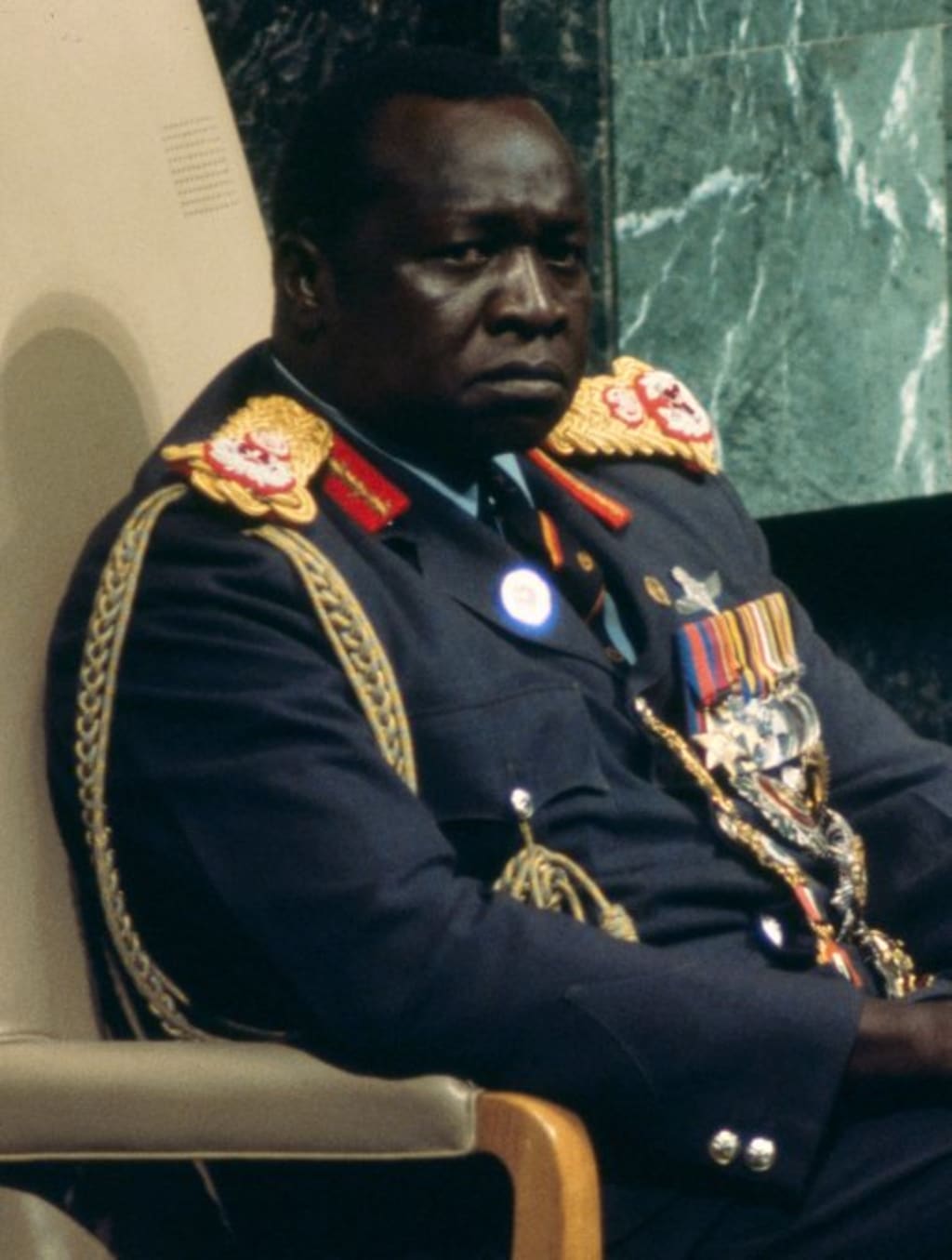
In the 1970s, Uganda was under the tyrannical rule of Idi Amin, a dictator whose regime would become one of the most brutal and repressive in modern history. Known infamously as the "Butcher of Uganda," Amin's reign of terror was marked by widespread atrocities and an almost unimaginable level of cruelty. His actions included feeding his victims to crocodiles, claiming to be a cannibal, and grotesquely mutilating one of his wives before rearranging her limbs.
Idi Amin Dada Oumee, often referred to simply as Idi Amin, seized power in a military coup in January 1971, overthrowing the elected government of President Milton Obote. Initially, Amin's takeover was met with some relief and even support from the Ugandan populace and international observers, as he promised to bring stability and end the corruption of the previous regime. However, it soon became apparent that Amin's rule would be anything but stable or benevolent.
Amin's rule was characterized by rampant human rights abuses, including severe political repression and ethnic persecution. He targeted various ethnic groups, including the Acholi and Lango people, who were perceived as supporters of Obote, as well as Asians, particularly those of Indian descent. In a notorious act in 1972, Amin ordered the expulsion of Uganda's Asian population, giving them 90 days to leave the country. This action led to the displacement of over 60,000 people, many of whom were Ugandan citizens. Their businesses and properties were seized and redistributed to Amin's loyalists, leading to widespread economic disruption.
The expulsion of Asians was just one aspect of Amin's ethnic persecution. His regime also conducted extrajudicial killings and mass executions. Amnesty International and other human rights organizations have estimated that Amin's security forces killed and tortured around half a million people between 1971 and 1979. Victims included political opponents, perceived enemies, and ordinary citizens who were caught up in the regime's indiscriminate brutality. Many of these killings were carried out in secret, with bodies often disposed of in the Nile River or fed to crocodiles.
Amin's penchant for violence extended to his personal life as well. One of the most gruesome stories from his regime involves the murder of his fourth wife, Kay Amin. In 1974, Kay was found dismembered, with her body parts allegedly rearranged in a macabre fashion. Reports suggested that Amin himself might have been involved in or directly ordered her mutilation, further cementing his reputation for barbarity.
In addition to his human rights abuses, Amin's regime was plagued by nepotism, corruption, and gross economic mismanagement. He filled key positions in the government and military with members of his own ethnic group and loyalists, regardless of their qualifications. This practice not only undermined the efficiency of the government but also fueled resentment and divisions among different ethnic groups in Uganda. Corruption was rampant, with Amin and his cronies siphoning off state resources for their personal enrichment.
Under Amin's rule, Uganda's economy deteriorated rapidly. The expulsion of the Asian community, who had been a significant part of the country's commercial and industrial sectors, led to a collapse in trade and industry. The redistribution of their businesses to Amin's supporters, who often lacked the necessary skills and experience, resulted in mismanagement and further economic decline. Inflation soared, basic goods became scarce, and the country's infrastructure crumbled. By the end of Amin's rule, Uganda's economy was in ruins, and the nation faced widespread poverty and hardship.
Amin's eccentricities and erratic behavior added another layer of fear and unpredictability to his rule. He proclaimed himself "Conqueror of the British Empire" and "King of Scotland," among other grandiose titles. He declared that he had visions from God and claimed supernatural powers. These declarations, coupled with his brutal actions, created an atmosphere of terror and uncertainty, as Ugandans could never predict what their leader might do next.
Internationally, Amin's regime faced increasing isolation and condemnation. Initially, some foreign governments, including the United Kingdom and Israel, maintained relations with Amin, but as his atrocities became more widely known, these relationships soured. The United States and other Western countries imposed sanctions, and Uganda was expelled from the British Commonwealth in 1977. Despite this international pressure, Amin remained defiant, often mocking and taunting world leaders.
The tipping point for Amin's regime came in 1978 when he ordered an invasion of Tanzania. This reckless military adventure was motivated by a desire to divert attention from domestic problems and to unite the country against a common external enemy. However, the invasion backfired spectacularly. Tanzanian forces, along with Ugandan exiles who had formed a resistance movement, launched a counteroffensive that quickly overwhelmed Amin's poorly organized and demoralized army.
In April 1979, Amin's regime came to an end when Tanzanian troops captured Kampala, the Ugandan capital. Amin fled into exile, first to Libya and then to Saudi Arabia, where he lived out the remainder of his life in relative obscurity until his death in 2003. Although he was no longer in power, the legacy of his brutal rule continued to haunt Uganda for years to come.
The aftermath of Amin's dictatorship was a period of reckoning and rebuilding for Uganda. The country faced the daunting task of recovering from nearly a decade of terror, economic collapse, and social fragmentation. Successive governments worked to restore order, promote reconciliation, and rebuild the economy. However, the scars left by Amin's reign were deep, and the process of healing was slow and painful.
Idi Amin's rule remains one of the darkest chapters in African history. His ruthless pursuit of power and the horrific human rights abuses committed under his regime left an indelible mark on Uganda and the world. Amin's legacy serves as a stark reminder of the destructive potential of unchecked power and the importance of safeguarding human rights and the rule of law.
In reflecting on Idi Amin's impact, it is crucial to remember the countless victims who suffered under his regime. Their stories of resilience and survival are a testament to the human spirit's capacity to endure even the most unimaginable horrors. As Uganda continues to move forward, the lessons learned from this dark period remain a vital part of the nation's collective memory, guiding its pursuit of justice, peace, and prosperity for future generations.
About the Creator
Enjoyed the story? Support the Creator.
Subscribe for free to receive all their stories in your feed. You could also pledge your support or give them a one-off tip, letting them know you appreciate their work.






Comments
There are no comments for this story
Be the first to respond and start the conversation.